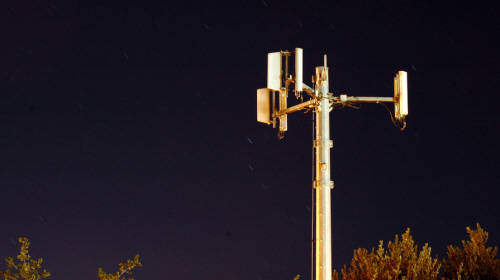
In April, ACLU of Colorado filed public records requests seeking to learn about their local law enforcement agencies’ policies, procedures, and practices for tracking cell phones, bringing the total count of ACLU-filed cell phone location tracking public records requests to over 400. (We’ve written about what we’ve learned nationwide here, here, here, here, and here, and our findings were featured in a front page story in the New York Times in April). What Colorado learned is particularly interesting because a remarkable number of law enforcement agencies in Colorado are getting probable cause warrants before tracking cell phone location information—Arvada, Boulder, Colorado Springs, Denver, and El Paso County always get warrants in investigative circumstances—and because Denver’s practices pretty much follow existing legislative proposals, proving these bills totally workable.
Denver’s rubric closely mirrors the requirements of the proposed federal Geolocational Privacy and Surveillance Act, as well as various state bills that would govern location tracking. The Denver Police Department requires a warrant for location tracking as a general rule, and provides an exception for missing people or true emergency situations where law enforcement must then go to the court and show probable cause after the fact. The fact that the police in Denver follow privacy-protective principles when tracking cell phone location belies claims by some that such procedures would impose unworkable burdens on law enforcement. They’re reasonable in Denver, and they would be reasonable nationwide.
And other Colorado police departments have even more privacy-protective practices than Denver. Summit County gets cell phone location information *only* where they “have needed to locate a missing person in a Search and Rescue call, or to locate an individual who is suicidal.” El Paso County obtains a probable cause warrant in every case, and only seeks information identifying which cell tower the phone was closest to at a given time. It appears that they’re not seeking more precise GPS location information or even to triangulate a phone’s location based on its proximity to multiple towers.
Another interesting tidbit from the Colorado documents we’ve received: Douglas County sent us their “Computer-Assisted Dispatch” (CAD) reports for all incidents where location information was sought by officers citing emergency circumstances between January 2011 and April 2012. Some of the codes the department used were not readily identifiable, but of the 74 requests made, many seemed, in fact, to be bona fide emergencies. Thirty-one fell into the categories of potential suicides, checking on someone’s welfare, or missing persons. There was one request for location information in the context of a burglary, and (the dispatcher noted) Verizon refused to provide information in that context. The document was short on details, but it's interesting to see that Verizon is not just rubber-stamping every request from law enforcement.
Law enforcement agencies in several cities and counties in Colorado —as well as, it seems, Verizon in Colorado—are setting great examples for their fellow agencies in Colorado and nationwide. Shouldn’t residents and visitors to Lincoln, Neb.; Wilson County, NC; Des Moines, Iowa; or Brick, NJ (to name a few) have the same level of privacy protection as the people of Denver, Colorado? After all, a person’s location can reveal a lot of intimate information about her. Is she frequenting gay bars? Alcoholics Anonymous meetings? A reproductive health clinic? A mosque? A fundamentalist church? Political protests? We shouldn't have to sacrifice our privacy just to use our cell phones. If you agree, go to our action center and tell your members of Congress as much.
Learn more about location tracking and surveillance: Sign up for breaking news alerts, follow us on Twitter, and like us on Facebook.



